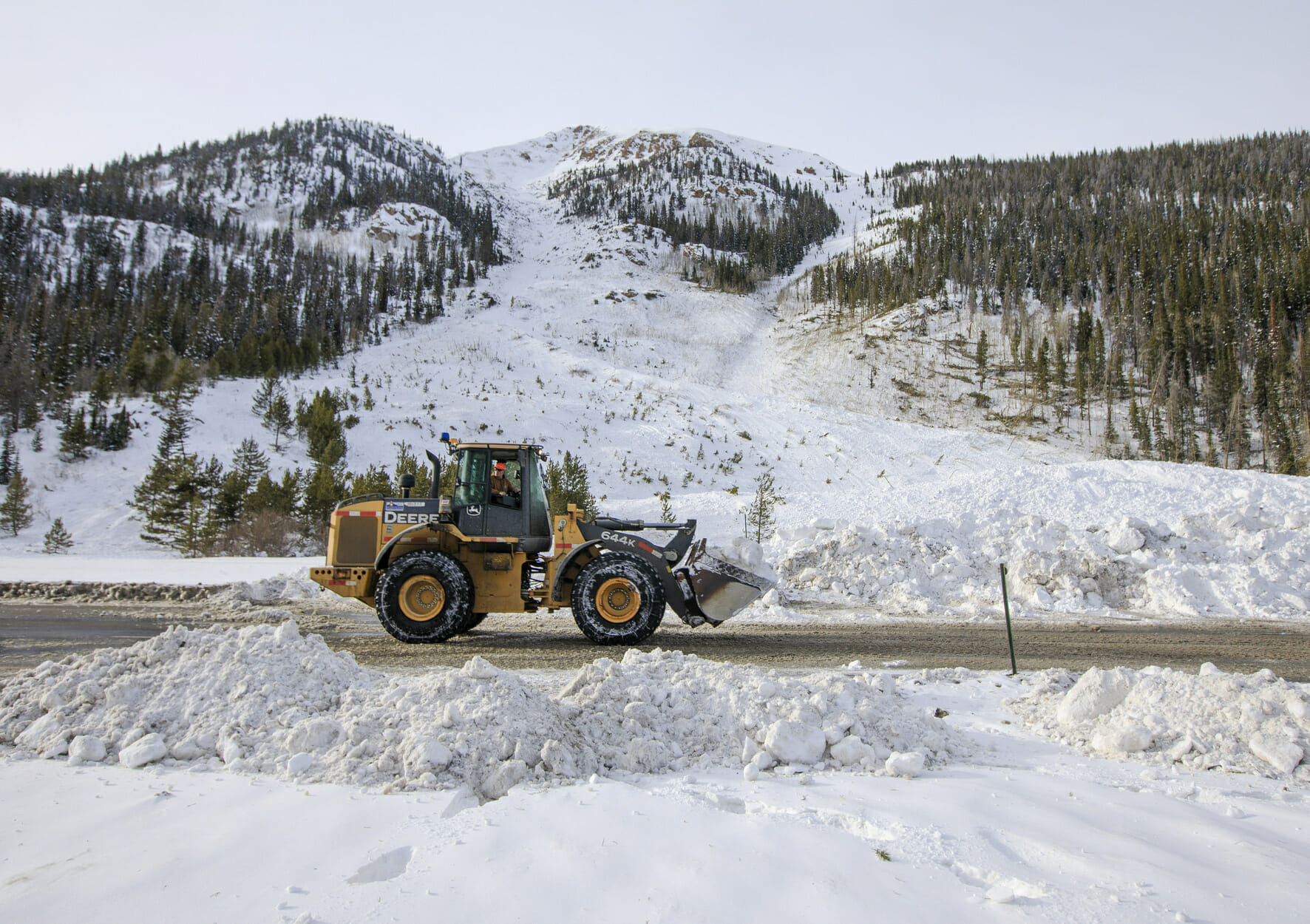
Historic avalanche danger persists in Colorado mountains
DENVER (AP) — Historic avalanche danger caused havoc in the Colorado mountains Thursday, shutting down portions of two highways and prompting a rare warning for drivers to avoid a route leading to some of the state’s busiest ski resorts.
After another round of heavy snow, at least three major snow slides buried vehicles and ruptured a natural gas line. No injuries were reported.
The first avalanche struck early Thursday near Vail Pass along Interstate 70, catching a tow truck at its outer edge.
The driver was not hurt but another tow truck had to pull his truck from the slide, which left 6 feet (2 meters) of snow on the road, transportation officials said.
A few hours later another avalanche ruptured a natural gas line to the east near Copper Mountain ski resort. Gas was turned off to the two buildings served by the line — a wastewater treatment plant and a gas station.
Crews had not been able to repair the break because of the ongoing avalanche danger, Xcel Energy spokeswoman Michelle Aguayo said.
Thursday afternoon, an avalanche thundered onto state Highway 91 about a mile (1.6 kilometers) south of Copper Mountain, engulfing at least three vehicles. The Colorado State Patrol said all the drivers and passengers were accounted for and safe.
The State Patrol said three vehicles were buried, and the highway department said four.
Highway officials said the slide was 300 feet (90 meters) wide and up to 15 feet (5 meters) deep. It was in an area where no avalanche had hit before, officials said.
There was no word on how long it would take to reopen the highway.
Copper Mountain said on its website that electricity was out to some of the base village, but it was not immediately known if that was related to one of the avalanches.
I-70 was closed for hours by the Vail Pass slide as well as later avalanches intentionally triggered by road crews to avoid more problems. The highway was re-opened Thursday night.
The Colorado Department of Transportation urged drivers to avoid traveling the highway in the mountains for much of Thursday.
The avalanche danger in the central mountains was rated as extreme, the highest rating.
The Colorado Avalanche Information Center said heavy March snows combined with strong winds created some of the most dangerous avalanche conditions in years.
An avalanche on Sunday stunned drivers along the interstate, sweeping vehicles off the road but causing no injuries.
All the new snow has proved to be too much of a good thing for some ski resorts.
Arapahoe Basin ski resort closed due in part to the extreme avalanche danger. In addition, an access road was closed by the avalanche danger. Other resorts were open, including Copper Mountain but with some lifts closed.
One intentionally triggered avalanche near the town of Empire reached Interstate 70 for the first time since 1957.
Snow from another intentional avalanche near the Eisenhower Tunnel covered all four lanes of the highway and left snow and other debris up to 15 feet (5 meters) deep over a 300-foot (91-meter) stretch of the road, the center said.
The Western Journal has not reviewed this Associated Press story prior to publication. Therefore, it may contain editorial bias or may in some other way not meet our normal editorial standards. It is provided to our readers as a service from The Western Journal.
Truth and Accuracy
We are committed to truth and accuracy in all of our journalism. Read our editorial standards.
Advertise with The Western Journal and reach millions of highly engaged readers, while supporting our work. Advertise Today.












